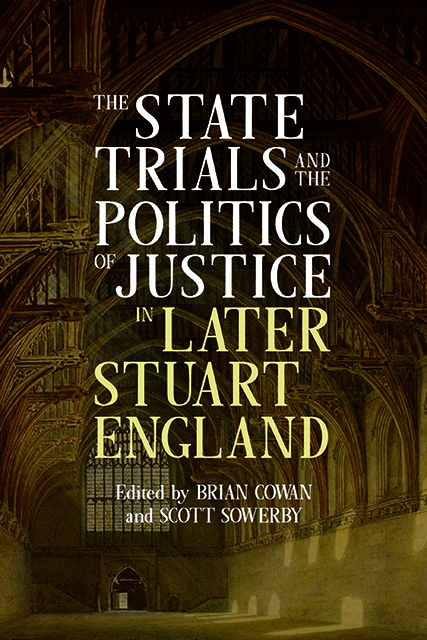3 - ‘Blood will have Blood’: The Regicide Trials and the Popular Press
Published online by Cambridge University Press: 14 January 2023
Summary
‘The vindictive justice must have his sacrifice somewhere.’
Between 9 and 19 October 1660, twenty-seven men were tried and found guilty of high treason. Ten were executed. These men were drawn on a hurdle to the place of execution, then hanged from a ladder, cut down alive, emasculated, disemboweled and finally beheaded and quartered. Their privates were thrown to the dogs; their intestines burnt; their heads and quarters doled out for display upon the king’s orders. The first eight executions were carried out at Charing Cross. But the stench of the burning bowels ‘had so putrefied the air’ that the nearby inhabitants petitioned Charles II, requesting that the remaining executions be moved elsewhere. Accordingly, the last two spectacles of what had become an increasingly dismal affair took place at Tyburn. After only ten days, these most public and bloody exhibitions were over. The Restoration regime had enacted its revenge.
There were aftershocks. The ritual hanging, beheading, quartering and displaying of the bodies of Oliver Cromwell, Henry Ireton and John Bradshaw took place that winter. Two years later, three more regicides were captured abroad, handed over and executed without trial in April 1662. But these episodes merely reinforced what the popular reaction to the blood-letting of October 1660 had already demonstrated: that the ritualistic mangling and killing of the regicides would not cleanse the past or reconcile a divided nation.
What follows is an examination of the regicide trials and executions of October 1660 as they were memorialized in the press. This essay contends that, despite Charles II’s stated desire to build his administration on clemency and oblivion, both his and parliament’s efforts to bring Charles I’s murderers to justice did not heal the nation. As the ever-watchful secretaries of state witnessed, the trials and public executions of the regicides, and their widely circulated dying speeches, did little to adorn the new regime, but did much to garner public sympathy for these men. The restored monarchy’s retributive justice, carried out against a select few, merely enriched a folk culture in opposition, consisting of former Cromwellians, parliamentarian soldiers, religious dissenters and republicans: in short, the various supporters of the Good Old Cause. Little wonder that the king himself told parliament in 1662 that ‘He need not tell them that there was a Republican party still in the kingdom, which had the courage still to promise themselves another Revolution’.
- Type
- Chapter
- Information
- Publisher: Boydell & BrewerPrint publication year: 2021



